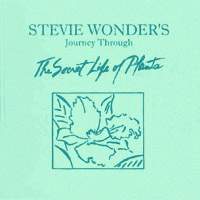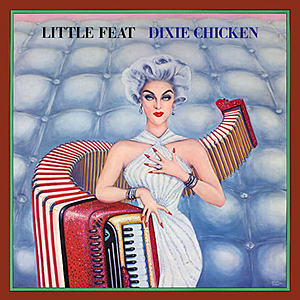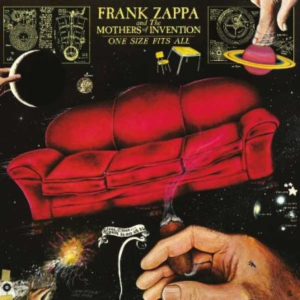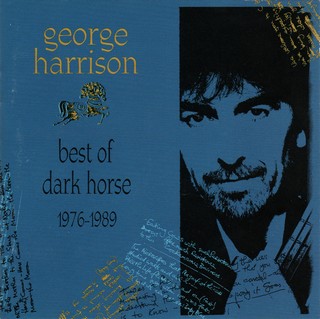
American Beauty is the fifth studio album by rock band the Grateful Dead. Released in November 1970, by Warner Bros. Records, the album continued the folk rock and country music style of their previous album Workingman's Dead, issued earlier in the year.

Live/Dead is the first official live album released by the rock band Grateful Dead. Recorded over a series of concerts in early 1969 and released later the same year, it was the first live rock album to use 16-track recording.

Stevie Wonder's Journey Through "The Secret Life of Plants" is an album by Stevie Wonder, originally released on the Tamla Motown label on October 30, 1979. It is the soundtrack to the documentary The Secret Life of Plants, directed by Walon Green, which was based on the book of the same name by Peter Tompkins and Christopher Bird. It contains two singles that reached the Billboard Hot 100 charts: "Send One Your Love" and the minor hit "Outside My Window". The single "Black Orchid" reached No. 63 in the UK.

Sunflower is the 16th studio album by the American rock band the Beach Boys, released on August 31, 1970 on Reprise Records, their first for the label. It received favorable reviews, but sold poorly, reaching number 151 on the US record charts during a four-week stay and becoming the lowest-charting Beach Boys album to that point. "Add Some Music to Your Day" was the only single that charted in the US, peaking at number 64. In the UK, the album peaked at number 29.

M.I.U. Album is the 22nd studio album by American rock band the Beach Boys, released on September 25, 1978. Characterized for its easy-listening sound, the album was produced by Al Jardine and touring member Ron Altbach during one of the most acrimonious periods in the band's history. It sold poorly, peaking at number 151 in the U.S, and was met with confused reactions from critics and fans.

Feats Don't Fail Me Now is the fourth studio album by the American rock band Little Feat, released in 1974, on the Warner Bros. label. The cover was designed by Neon Park.

The Early Beatles is the Beatles' sixth album released on Capitol Records, and their eighth album overall for the American market. All of the tracks on this album had previously been available on the Vee-Jay Records release Introducing... The Beatles, issued in January, 1964. The front cover photo for this album features the same back cover photo for the British LP Beatles for Sale.

Dixie Chicken is the third studio album by the American rock band Little Feat, released in 1973. The artwork for the front cover was by illustrator Neon Park and is a reference to a line from the album's third song, "Roll Um Easy".

Welcome to My Nightmare is the debut solo studio album by American rock musician Alice Cooper, released on February 28, 1975. It is his only album for the Atlantic Records label in North America; in the rest of the world, it was released on the ABC subsidiary Anchor Records. Welcome to My Nightmare is a concept album. Played in sequence, the songs form a journey through the nightmares of a child named Steven. The album inspired the Alice Cooper: The Nightmare TV special, a worldwide concert tour in 1975, and his Welcome to My Nightmare concert film in 1976. The ensuing tour was one of the most over-the-top excursions of that era. Most of Lou Reed's band joined Cooper for this record.

One Size Fits All is the fourteenth album by the Mothers of Invention, and the twentieth overall album by Frank Zappa, released in June 1975. The album reached #26 on the Billboard Top LPs & Tape chart in the United States in August 1975.

Q: Are We Not Men? A: We Are Devo! is the debut studio album by the American new wave band Devo. It was originally released in August 1978 on Warner Bros. in the North America and Virgin Records in Europe. Produced by Brian Eno, the album was recorded between October 1977 and February 1978, primarily in Cologne, West Germany.

Best of Dark Horse 1976–1989 is a compilation album by British musician George Harrison, released in October 1989. His second compilation, after the Capitol/EMI collection The Best of George Harrison (1976), it contains songs from Harrison's releases on his Dark Horse record label between 1976 and 1987. The album also includes a 1989 single, "Cheer Down", which was Harrison's contribution to the soundtrack of the film Lethal Weapon 2, and two tracks recorded specifically for the collection: "Poor Little Girl" and "Cockamamie Business". Despite the popularity of Harrison's work over this period – both as a solo artist with his Cloud Nine album (1987), and as a member of the Traveling Wilburys – the compilation failed to achieve commercial success.

Class Clown is the fourth album released by American comedian George Carlin. It was recorded on May 27, 1972 at the Santa Monica Civic Auditorium in Santa Monica, California, and released in September.

Little David Records was a record label started in 1969 by up-and-coming comedian Flip Wilson and his manager, veteran jazz producer Monte Kay. The label focused mainly on comedy albums, with some jazz and soft rock releases. Little David was independently distributed for its first year but was picked up by Atlantic Records for most of its existence, except for a year under Warner Bros. Records.

On the Road is an album by the American comedian George Carlin, released in 1977. It was recorded on October 3, 1976, at the Dorothy Chandler Pavilion in Los Angeles, California. It peaked at No. 90 on the Billboard 200. The album was included as part of the 1999 The Little David Years (1971-1977) box set.

FM & AM is the third album by American comedian George Carlin. This album was originally released in 1972 on the Atlantic Records subsidiary label Little David Records, later reissued on Carlin's Eardrum Records label. It was also included as part of the 1992 Classic Gold collection, and The Little David Years (1971-1977) box set.

The Little David Years (1971–1977) is a box set by American comedian George Carlin. It consists of his six albums recorded with the Little David record label, with an additional CD of previously unreleased bonus material, including "The Coney Island recordings"; a recording he made as a child. This seven-disc set was released on October 19, 1999, on the Atlantic Records label.

Pickin' Up the Pieces is the debut album by country rock band Poco, released in 1969. It was one of the earliest examples of the emerging genre of country rock. Several of the songs date back to Richie Furay's days in Buffalo Springfield. An early version of "What a Day" was included on the Buffalo Springfield box set in 2001.

Drew Struzan is an American artist, illustrator and cover designer. He is known for his more than 150 movie posters, which include The Shawshank Redemption, Blade Runner, E.T. the Extra-Terrestrial, as well as films in the Indiana Jones, Back to the Future, and Star Wars film series. He has also painted album covers, collectibles, and book covers.

September in the Rain is a 1937 Warner Bros. Merrie Melodies cartoon directed by Friz Freleng. The short was released on December 18, 1937.




















